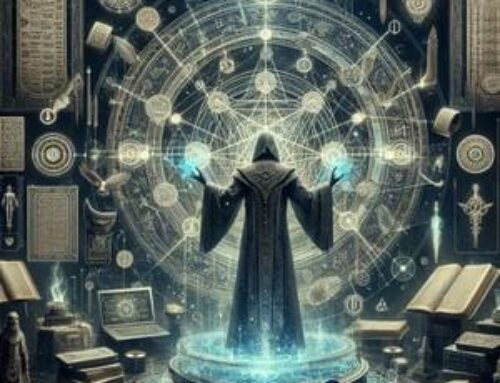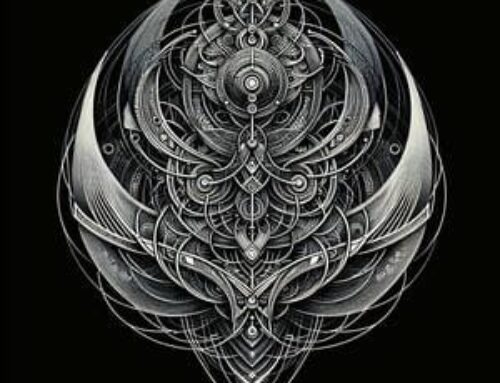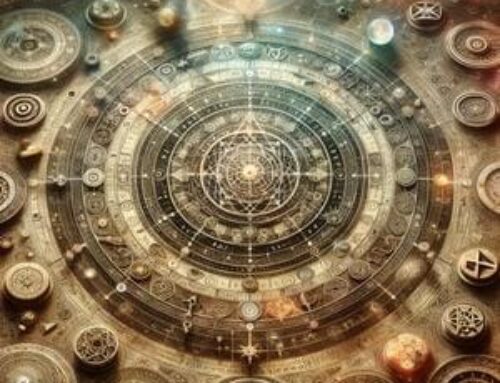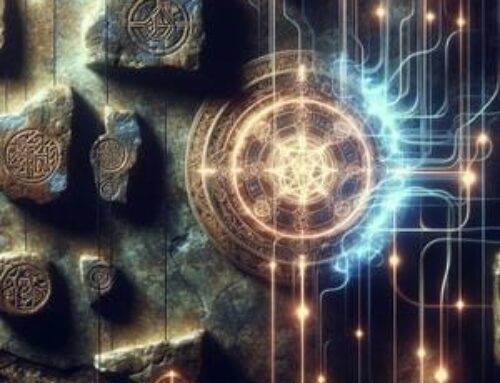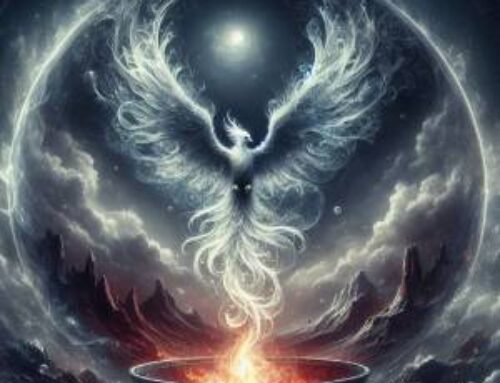Contents
The Allure of the Unseen
“Magick is real.” These words, when spoken, send a shiver down the spine, don’t they? Perhaps it’s the lingering sense that there’s more to our existence than meets the eye; perhaps it’s the centuries of whispers, rumors, and occasional outbursts of strange happenings. From the ancient corridors of Egyptian temples to the hidden alcoves of Greek sanctuaries, the idea that there is something—no, someone—behind the veil has captivated humanity for longer than we can truly know. The allure is undeniable. Magick is real and deeply intertwined with the spiritual evolution of humanity.
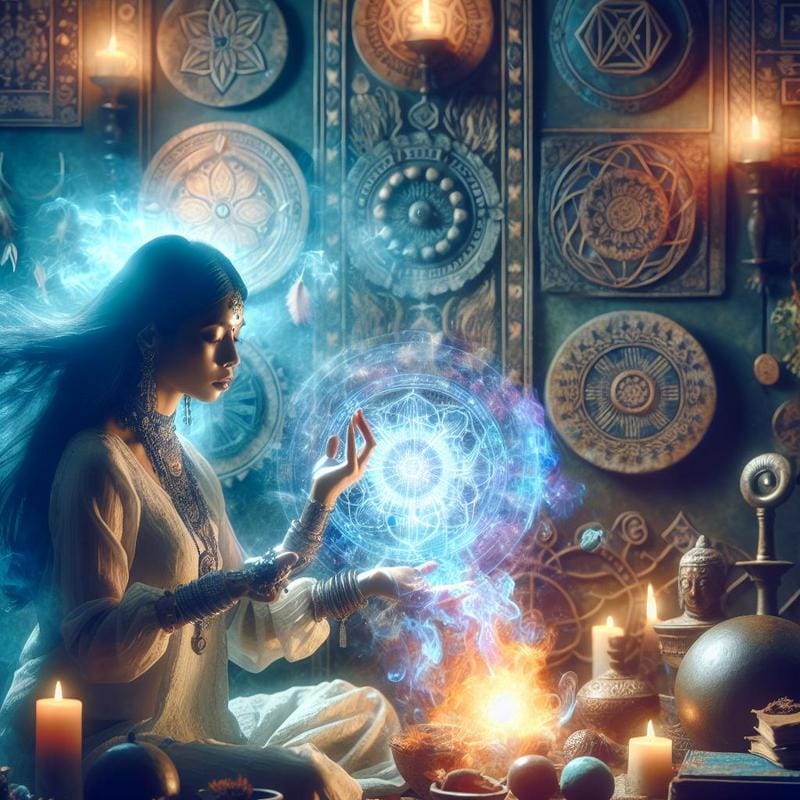
For millennia, magick has remained both an object of awe and terror. It is not some trivial pursuit but an invitation to unlock the very fabric of reality. To step into the shoes of the magus is to flirt with powers that are as ancient as time itself, to brush against secrets that have molded entire civilizations. From Egypt’s priests who guided pharaohs to Greek oracles who whispered the gods‘ will, magick wasn’t just a belief—it was the engine driving the world forward.
In Pursuit of the Hidden Truths
It’s tempting to dismiss magick as nothing more than folklore, an artifact of less enlightened times, but doing so would be a grave oversight. In a world where the material reigns supreme, the resurgence of interest in magick speaks to a fundamental human yearning. Something in us still craves the mystical, still seeks the hidden truths that rationality has all but eclipsed.
In these strange modern times, as science maps every star and dissects every atom, the notion that magick might hold real, transformative power seems almost absurd. But is it? Perhaps what we call magick is simply a deeper understanding of the universe’s inner workings, something that requires not just intellect but intuition, emotion, and spirit.
The Ancient Mysteries: Echoes of Forgotten Wisdom
“Magic was the science of Abraham and Orpheus, of Confucius and Zoroaster” (1).
Step back in time, my dear reader, to the shadowy temples of ancient Egypt, where magick wasn’t just practiced—it was lived. To be an initiate in the Mysteries was to embark on a journey that transcended the mundane. It wasn’t a pastime for the curious; it was a sacred duty, one that could not be undertaken lightly. Those chosen to tread this path did so knowing they were about to encounter forces far beyond their understanding. The ancient mysteries reveal that magick is real and has always been a part of our world.
The Mysteries held magick as a sacred science—one that could uplift humanity or lead it to ruin (2). It was no surprise, then, that these teachings were kept hidden, locked away from the unworthy and the unprepared. The road to initiation was long, filled with trials that tested not just the body but the very soul. To claim the mantle of a true magician was to undergo a profound metamorphosis, to align oneself with the cosmos, and to become a vessel for its power. The transformation was not simply a change in belief but in being, as the initiate moved ever closer to the divine.
Rituals: The Dance of the Cosmos
Now, let us turn our gaze to the art of ritual—a word often bandied about, yet little understood. In the world of magick, rituals are not mere performances; they are the very language of creation. When a magician conducts a ritual, they are not simply reciting incantations—they are aligning themselves with the primal forces that weave the tapestry of existence. Each gesture, each word, is a note in a cosmic symphony, resonating with energies that can shape reality itself.
Consider, for a moment, the role of symbols in these rituals. Far from being random designs, they are keys—ancient and potent, unlocking doors to realms unseen. Each symbol carries within it layers of meaning, layers of power. To wield these symbols effectively is to communicate with the very essence of the universe, to speak in a tongue that transcends mere human language. Many still question whether magick is real, yet countless traditions affirm its existence.
And what of the effects of these rituals? Ah, this is where magick reveals its true nature—not as a mere collection of tricks or illusions, but as a transformative process. For the magician, the act of ritual is a journey inward as much as it is an outward expression. With each ritual, the practitioner peels away the layers of the mundane self, drawing ever closer to the core of their being. Through this process, the magician learns not just that magick is real, but that it is a reflection of their deepest self—a profound, mystical science. Understanding that magick is real opens the door to a higher level of consciousness.
The Ethos of Power
But, a word of caution is necessary here. Magick, true magick, is not for the faint of heart or the self-serving. It is a path that demands not only knowledge and skill but a strong moral compass. The ancients knew well the dangers of unchecked power, and their teachings are rife with warnings. The ethical foundation of magick is not some afterthought but the very bedrock upon which it stands.
The true magician understands that their abilities are not to be wielded for selfish gain. Such misuse leads not only to personal downfall but to a disruption of the cosmic order itself. Those who tread the path of magick must do so with a sense of responsibility, with an understanding that their actions have far-reaching consequences. The power they command is not their own—it is a gift from the universe, and it must be used in service to the greater good.
The Path Forward
As we conclude this exploration, let us not forget that the path of magick is one of continual discovery. It is a journey that challenges us to look beyond the surface of things, to see the underlying currents that shape our reality. It is a path that requires not only intellect but heart, not only knowledge but wisdom.
For those willing to take the plunge, the rewards are vast. Magick, after all, is not just about wielding power—it’s about understanding the true nature of existence. It is about finding one’s place within the grand scheme of things, and learning to work in harmony with the forces that govern the cosmos. It is about transformation, not just of the world around us but of the self.
Spiritual journeying is a lifelong process that involves exploring one’s inner self and a larger cosmic consciousness, often leading to transformational experiences and assisting others in healing processes (3).
Closing Words: The Magician’s Promise
In the end, the truth that magick is real is not something to be taken lightly. It is a profound realization that opens up new possibilities, new ways of being. But with this realization comes a responsibility—to oneself, to others, and to the universe itself. Magick is not a game, nor is it a shortcut to power. It is a path of enlightenment, one that requires dedication, discipline, and above all, a commitment to ethical conduct. The transformative power of the mysteries proves that magick is real.
So, dear reader, if you feel the call of magick, tread carefully. Seek out the ancient teachings, learn from those who have walked the path before you, and above all, approach with reverence. The universe holds many secrets, and magick is but one of them. But it is a secret worth discovering—a truth worth living.
FAQs- Magick is Real
1. Is “magick” just a fancy word for magic?
A: Magick, with its distinctive ‘k’, isn’t simply a synonym for magic; it’s a nod to the ancient, the esoteric. It recognizes a deeper, more spiritual practice that transcends stage tricks and fantasy. This magick is the manipulation of the natural forces of the universe, achieved through ritual, symbol, and intention.
2. What’s the point of all these rituals anyway?
A: Rituals are the bridge between the mundane and the mystical. They’re not just actions—they’re experiences, carefully designed to align the practitioner with cosmic energies. Think of them as a dialogue with the universe, where every symbol, every word, is a way of speaking to the deeper truths of existence.
3. Why is it that every discussion on magick ends up harping on ethics?
A: Ethics in magick isn’t just important—it’s everything. When you’re dealing with forces that can alter reality, a solid moral compass isn’t just advisable; it’s essential. Misusing magick isn’t just about personal consequences; it’s about potentially causing harm on a scale that goes beyond the individual.
4. Can I become a magician by reading a few books?
A: Books are a good start, but magick isn’t something you just pick up and master. It requires years of study, practice, and most importantly, self-reflection. True mastery comes from experience, discipline, and a willingness to undergo personal transformation.
5. Where can I actually learn this stuff?
A: If you’re serious about diving into the world of magick, the Hermetic Academy is a place to consider. With structured teachings that honor the ancient Mysteries, it’s an institution that takes the art of magick seriously. You won’t just learn—you’ll transform.
A Final Thought
In the quiet moments, when the world is still, and the night is deep, you might hear it—a whisper, a call from the shadows. It’s the voice of magick, beckoning you to explore, to discover, to transform. Will you listen?
References
(1) Levi, E. (2017). The History of Magic. Translated by A. E. Waite (2nd ed.). London: William Rider & Son Ltd.
(2) Rubenstein, E. (2023). Magic: The Legacy of the Rosicrucians. Hermetic World, Paphos.
(3) Keegan, L. (1991). Spiritual Journeying. Journal of Holistic Nursing, 9, 14 – 3. https://doi.org/10.1177/089801019100900103.

